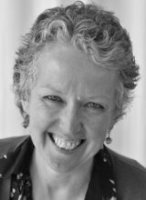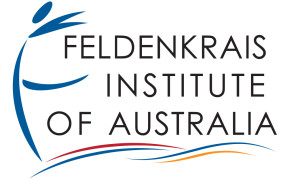Julie Peck: Work in Progress
 As a teacher, Julie Peck is always learning.
As a teacher, Julie Peck is always learning.
The educational director of professional Feldenkrais training programs across Australia, Julie is endlessly curious about the explorations and discoveries she continues to make through the Feldenkrais Method. Julie makes these discoveries by working with clients in her Perth-based practice, with students in the training programs, and with colleagues whose feedback she sees as essential to her development.,
Julie says the Method has given her “a passion”. “There’s something I can keep coming back to and see, that’s another level of understanding.”
This perpetual interest was first piqued when, as a physiotherapist, Julie attended some Feldenkrais workshops. “It was that really basic thing: here am I, a physio, and I’m teaching people how to move, and I don’t actually know how to move,” Julie says.
“I realised there was such a big discrepancy between what I thought I was doing subjectively, and objectively what it looked like I was doing. It just blew my mind that those two experiences could be so out of whack.
“I’d always known it in a way. Because I’m an introvert, I can remember being at parties when I was younger and wanting to be there and knowing that ‘I can’t organise myself to be here’. This little voice would be going in my head saying, ‘Well why would anyone want to come up and talk to you when you’re standing against the wall hiding like this?’ but I couldn’t do anything about it.
“I couldn’t have put it into the words of Feldenkrais then – but I always knew that at times my intention and action were way off beam. It had to be a really concrete example for me to understand it; it had to be a felt experience.
“And it was Feldenkrais that made me realise that that was an organisation, that it was me stopping myself with all these parasitic actions, and cross-motivations, that gave me a model to be able to start to think, ‘Oh that’s what’s happening’.”
Julie became a certified Feldenkrais practitioner in 1990, and five years later, was offered the opportunity to work as an assistant trainer on a professional training program. But what it really offered Julie was the chance to observe and learn. “It was very clear to me from early on that different people had really different ways of presenting the work. What made them good facilitators or teachers was that they did it their way,” Julie recalls.
“So, because of the people I worked with, I always felt that I could become myself as a teacher, that I didn’t have to be anyone else. And that was a really important part of my process in becoming a trainer .”
That process continues to this day. Julie understands that a person needs be in a state where they feel comfortable and competent in order to learn and experience different options in the way they move and act in the world. Another important component of this is that they are able to meaningfully take on feedback – and that feedback is essential to learning.
And so to fuel her learning, Julie maintains an openness to the views of colleagues, students and clients. “I need other people’s viewpoints otherwise it just becomes my interpretation,” Julie says. “I think that’s really dangerous because then you forget how many different ways you can look at it, and how different people understand things in different ways.”
That might sound like an endless hill to climb but according to Julie, “I’ve never felt that I’ve had to have it all. I’ve never felt in learning that you get to an end point and you know it”.
Julie takes her cues from Moshe Feldenkrais. Although Julie never met him, she has witnessed much of his teaching through books, video and audio. When asked about the potential for people to develop guru mentality in response to Feldenkrais she describes him as “No guru!”.
“He was so human, that’s what I loved about him. Life was about becoming more of who he felt he was comfortable being. And I think that’s what I’ve learnt through Feldenkrais – just getting more comfortable with who I am, and as I get more comfortable I can allow people around me to be who they are – I think it’s a huge gift,” Julie explains.
“So to me Feldenkrais was a genius, he was a maverick, and he was absolutely a human with all the foibles. And that’s what I don’t like about – my interpretation of guru – a guru can’t have any faults, a guru can’t be human, a guru shouldn’t make mistakes, and none of that is to do with learning.
“I suppose I have to put into context, there are some people I see in the world like the Dalai Lama and I still wouldn’t call them a guru, but they’re to be highly respected and my respect comes from the life that you live and the lightness and the laughter and that he can still make mistakes – it’s the humanness, that’s what I call living your life. It’s the humanness that we’re all in this together.”


